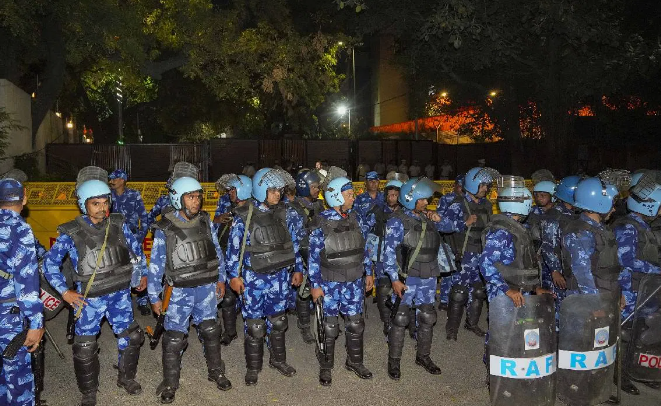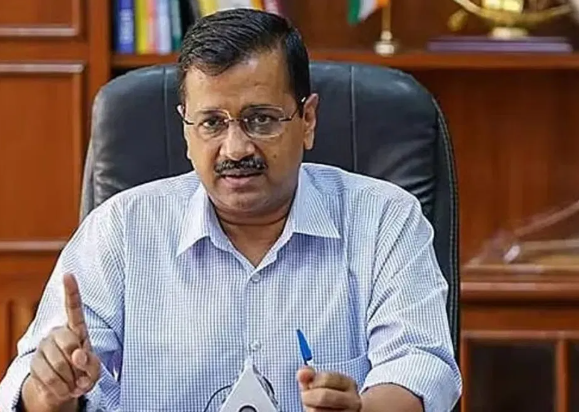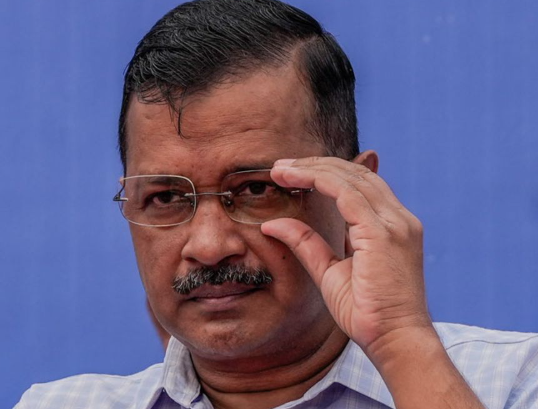Arvind Kejriwal Takes On Adversity, Rushes to Supreme Court Amidst ED Arrest
Arvind Kejriwal Against ED Arrest in Excise Policy Case
On Thursday, the Enforcement Directorate (ED) took a significant step by arresting Delhi Chief Minister Arvind Kejriwal, citing his alleged involvement in the contentious 2021-22 excise policy of the state, which has since been scrapped. This arrest unfolded just hours after the high court dismissed Kejriwal’s plea for protection from arrest, setting the stage for a dramatic legal and political showdown.
Senior ED officials confirmed Kejriwal’s arrest, marking a culmination of events that began with an ED team arriving at the Chief Minister’s residence shortly after 6 p.m. The swift action by the ED drew swift condemnation from top leaders of Kejriwal’s Aam Aadmi Party (AAP), who gathered outside his residence to protest. AAP leaders accused the ED of acting at the behest of the Bharatiya Janata Party (BJP), alleging a politically motivated move to target Kejriwal.

Delhi’s Finance Minister, Atishi, denounced the ED’s actions as part of a larger political conspiracy orchestrated by Prime Minister Narendra Modi. She emphasized that Kejriwal’s arrest, especially when his petition against the ED’s summonses was still pending in the Delhi High Court, reflects the blatant politicization of law enforcement agencies. Atishi further underscored AAP’s swift response by announcing their move to approach the Supreme Court to challenge Kejriwal’s arrest and seek urgent hearing, highlighting that he continues to hold the position of Chief Minister despite the arrest.
Kejriwal’s arrest places him in the company of other senior AAP leaders who have faced similar legal challenges. His former deputy and senior AAP leader, Manish Sisodia, along with the party’s Rajya Sabha MP, Sanjay Singh, have previously been arrested in connection with the same probe. The arrest follows a pattern of legal actions against opposition leaders, including the recent arrest of Bharat Rashtra Samithi leader and Telangana lawmaker, K. Kavitha, in the same case, signaling a broader crackdown on political dissent.
The Delhi High Court’s decision to deny Kejriwal’s plea for protection from arrest further intensified the legal battle. The bench, comprising Justice Suresh Kumar Kait and Justice Manoj Jain, declined the relief sought by Kejriwal, questioning why he had not pursued anticipatory bail in the lower court if he anticipated arrest. The court’s decision underscored the legal complexities surrounding the case, particularly regarding the nature of the ED’s summonses and Kejriwal’s refusal to comply.
Kejriwal’s legal strategy of boycotting the ED’s summonses, citing their purported illegality and lack of clarity regarding his role, has come under scrutiny. The court pointedly questioned Kejriwal’s decision to abstain from attending the summonses and urged him to seek legal recourse if he felt aggrieved, highlighting the importance of adhering to due process.
In conclusion, the arrest of Arvind Kejriwal by the ED in connection with the excise policy case has ignited a legal and political firestorm. As the legal battle unfolds, it underscores the broader implications for democratic norms and the rule of law in India. Kejriwal’s arrest is not just a legal matter but also a reflection of the complex interplay between law, politics, and governance in the country’s vibrant democracy.
The arrest of Delhi Chief Minister Arvind Kejriwal by the Enforcement Directorate (ED) in connection with the state’s now-scrapped 2021-22 excise policy has sparked a flurry of political uproar and legal maneuvers. The ED’s action came hot on the heels of the Delhi High Court’s dismissal of Kejriwal’s plea for protection from arrest, setting the stage for a contentious legal battle.
In a dramatic turn of events, a team of ED officials descended upon Kejriwal’s residence in the early evening, culminating in his arrest. The move sent shockwaves through the political landscape, prompting swift reactions from leaders of Kejriwal’s Aam Aadmi Party (AAP), who rallied outside his residence. Accusations flew, with top AAP figures alleging that the ED’s actions were politically motivated and orchestrated by the ruling Bharatiya Janata Party (BJP).
For the latest updates-click here.
